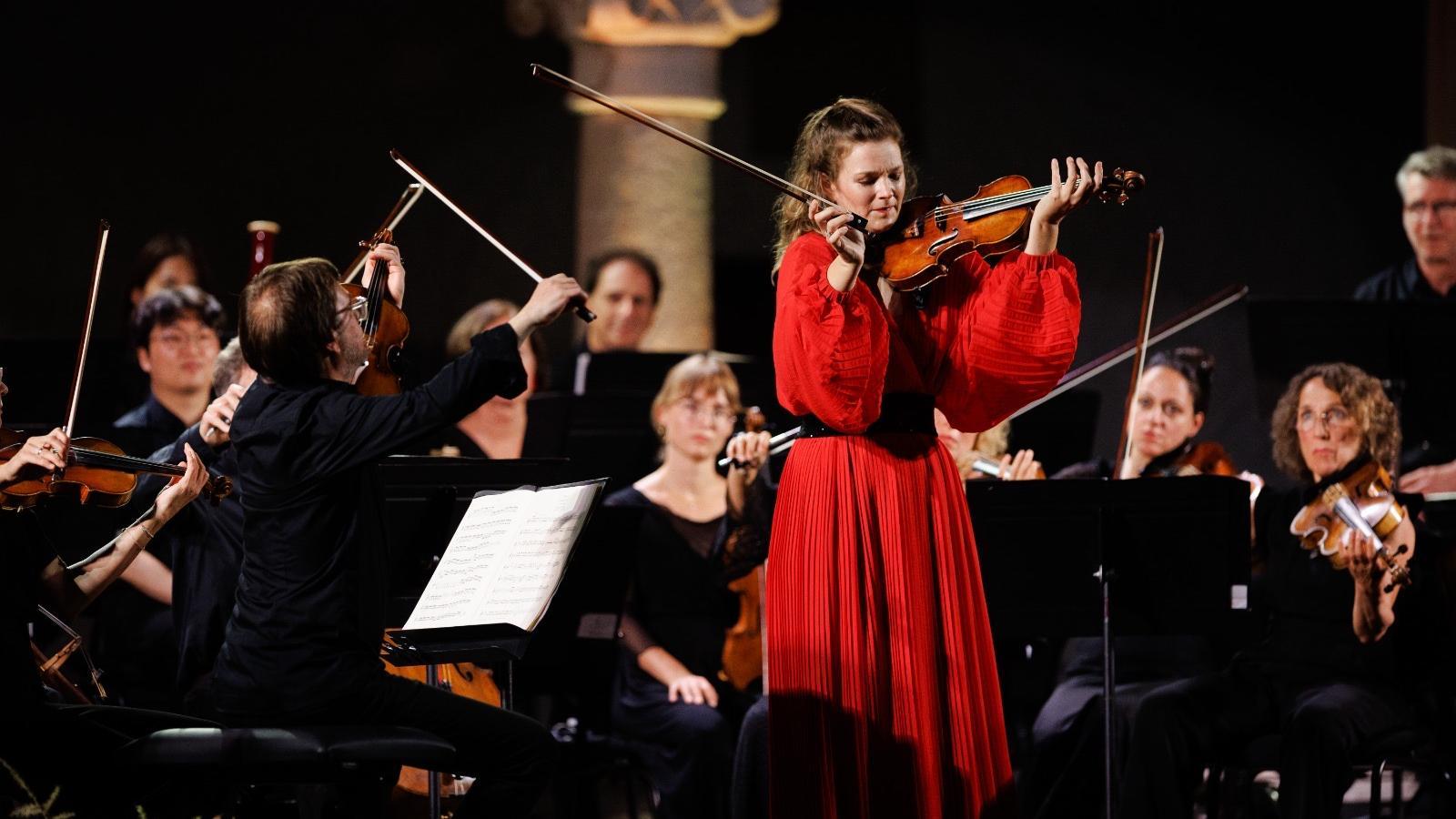Excellence conquers Pollença
Dutch violinist Janine Jansen, accompanied by the Camerata Salzburg, was in charge of opening the 64th edition of the Pollença Festival.


Pollença"Estate's Impetuous Tempo" says the note that Vivaldi wrote as a guideline for how the third movement of his famous summer should be interpreted Four seasons. This was the small but great gift, in return for the applause, that Janine Jansen and Gregory Ahss offered us with a small group of strings from the Camerata Salzburg, which only served to confirm that we were witnesses of a memorable evening, where excellence was always present for a single moment. From the very first agreements of the Ricercare at 6 of The Musical Offering, BWV 1079, by Johann Sebastian Bach, in a version for chamber orchestra by Shane Woodborne, the bar of the concert was set so high it was almost invisible. The reading could not have been more meticulous or more baroque, with more than thirty professors achieving textures of profound meticulousness, as light as they were neat. It was only the beginning of the first concert of the 64th Pollença Festival, with a cloister in Sant Domingo where there was not even room for a needle. A gala atmosphere, authentic, in the best sense of the word.
For her part, Janine Jansen and her Stradivarius, which they called Barrére, made an appearance with the sudden attack that the main instrument makes right at the beginning of the concert. Violin Concerto in E minor, Op. 64, by Felix Mendelssohn, an exclusive piece for the chosen few. A multifaceted movement with a whole range of combinations where practically all the instruments of the orchestra intervene in a way as suggestive as it is delicate, until reaching a cadenza almost impossible, which Jansen executed with unattainable exquisiteness. With a sustained note from the bassoon, without respite, the second movement began, of infinite tenderness, impeccable and clear execution, which required the agility of a magician and transformed the setting into an Arcadia where there was only room for magnificence. Only a fraction of a second to face a third movement that again requires the magic of virtuosos, with a succession of arpeggios, up and down, improbable and delicious, signed with another cadenza and a coda of majestic intensity.
It seemed that anything else that came after would always be far inferior. Wrong. The Camerata Salzburg, elegant until then, did not lower the bar with the interpretation of the Symphony No. 4, known as Italian and which Felix Mendelssohn defined as "a blue sky in A major." The composition is no less elegant, with which Ahss and his group gave another lesson in delicacy and transparency, or in how a symphony can sound like a piece for chamber orchestra, without symphonic stridency, transformed into delicate passages, without losing strength or robustness. It didn't end there either. The people of Salzburg rewarded us for the many applauses with thescherzo of the Symphony No. 1, also by Mendelssohn. Night of excellence in Pollença.
